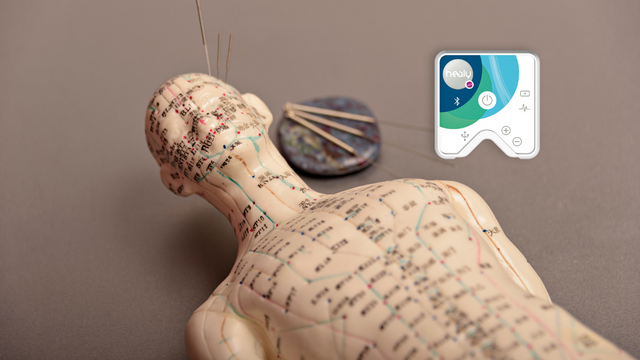MERIDIANS 1&2: WHY SO IMPORTANT?
What are the Meridians
The human body is an intricate system made up of interconnected elements that work together to maintain health and balance. One important aspect of this system is the concept of meridians, which are channels that transport energy, or Qi, throughout the body. There are twelve main meridians in the body, each associated with a specific organ and organ system.
-
Lung Meridian: This meridian begins at the thumb and runs down the arm and into the chest, where it connects with the lungs. The Lung Meridian is associated with respiration and immunity, as well as the emotions of sadness and grief.
-
Large Intestine Meridian: This meridian begins at the index finger and runs down the arm and into the large intestine. The Large Intestine Meridian is associated with elimination and the emotions of anger and frustration.
-
Stomach Meridian: This meridian begins at the big toe and runs up the leg and into the stomach. The Stomach Meridian is associated with digestion and the emotions of worry and pensiveness.
-
Spleen Meridian: This meridian begins at the big toe and runs up the leg and into the spleen. The Spleen Meridian is associated with regulation of blood and fluids, as well as the emotions of worry and pensiveness.
-
Heart Meridian: This meridian begins at the little finger and runs down the arm and into the heart. The Heart Meridian is associated with circulation and the emotions of joy and love.
-
Small Intestine Meridian: This meridian begins at the little finger and runs down the arm and into the small intestine. The Small Intestine Meridian is associated with separation and absorption of nutrients, as well as the emotions of joy and love.
-
Bladder Meridian: This meridian begins at the pinky toe and runs up the leg and into the bladder. The Bladder Meridian is associated with elimination of waste and the emotions of fear and insecurity.
-
Kidney Meridian: This meridian begins at the pinky toe and runs up the leg and into the kidneys. The Kidney Meridian is associated with regulation of fluids, metabolism, and the emotions of fear and insecurity.
-
Pericardium Meridian (use heart meridian in the healy database): This meridian begins at the palm and runs down the arm and into the chest, where it connects with the pericardium. The Pericardium Meridian is associated with circulation and the emotions of joy and love.
-
Triple Warmer Meridian (use organ meridian in the healy database): This meridian begins at the palm and runs down the arm and into the abdomen, where it connects with the Triple Warmer organ system. The Triple Warmer Meridian is associated with regulation of body temperature, metabolism, and the emotions of worry and pensiveness.
-
Gallbladder Meridian: This meridian begins at the eye and runs down the side of the head, neck, and torso and into the gallbladder. The Gallbladder Meridian is associated with decision making and the emotions of anger and frustration.
-
Liver Meridian: This meridian begins at the big toe and runs up the leg and into the liver. The Liver Meridian is associated with regulation of hormones, emotions, and the emotions of anger and frustration.
In traditional Chinese medicine, these meridians and their associated organs and emotions play an important role in maintaining overall health and wellness. Imbalances in the flow of energy in these meridians can lead to physical and emotional symptoms, and treatments such as acupuncture, herbal remedies, and massage are used to restore balance and promote healing.
Meridians 1
Allergy Meridian - Energetic desensitization of the energy flow.
Connective Tissue - Energy regulation of the connective tissue. Bladder - Regulation of bladder energy control.
Large intestine - Harmonizing the energy field of the large intestine.
Small intestine - Harmonizing the energy control of the small intestine.
Fatty degeneration - Energetic regulation of cell uptake; meaning the process of lipid (fat) metabolism and processing within the cell. (Breaking down and burning storage of fat for fuel)
Gallbladder - Energetic balancing to support digestion and regulation of the digestion of fat.
Joints - Energetic support of connective/joint tissue and balancing of flexibility.
Skin - Energetic promotion of the energy pathways of the skin.
Heart - Energetic stimulation of the heart energy.
Meridians 2
Hormonal balance - Energetic support for balanced hormones.
Circulation - Energetic support for blood circulation. The circulatory system is an important highway that transfers oxygen rich blood and other nutrients that are important for health as well as playing a role in blood pressure.
Liver - Energetic metabolism regulation.
Lungs - Energetic balancing of the respiratory system.
Lymphatic system - Energetic regulation of the lymphatic system, which is responsible for the transport of toxins and helps to rid the body of unwanted materials. It also helps to fight infection.
Stomach - Energetic harmonization of the gastric function. The stomach is the first step in breaking down food into usable nutrients to be sent to the blood stream.
Spleen-Pancreas - Stimulation of the energy field of the spleen and pancreas.
Nerve Meridian - Energetic harmonization of the nerve function.
Kidney – Energetic support for the body’s ability to maintain fluid balance.
Organ Meridian - Harmonizing the energy flow (“chi”) between the organs. Each organ has a specific job to carry out in each of the body systems. Frequencies help to establish a cohesive and supportive energy that resonates with the organs.
